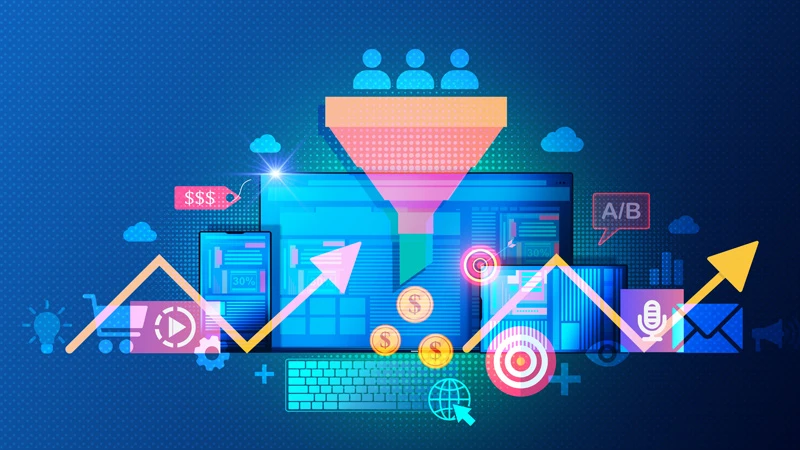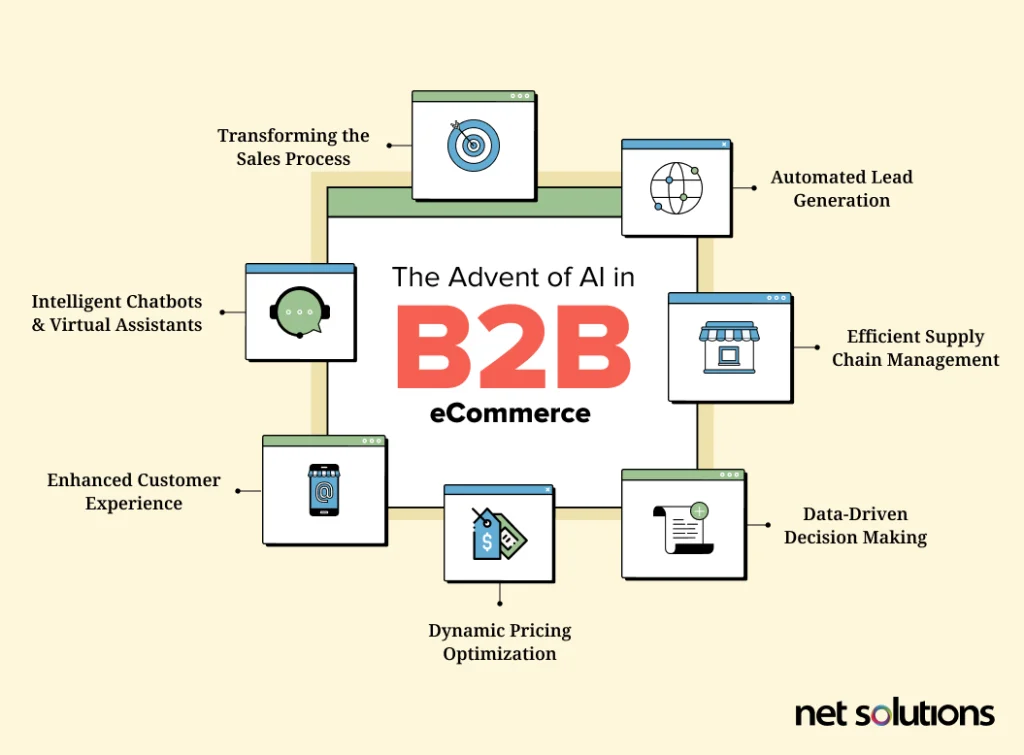Open Effectiveness and Development With AI Automation for B2B Companies
AI automation is transforming the landscape for B2B firms. It simplifies operations and minimizes reliance on human intervention. This change enables companies to make quicker, data-driven decisions. As companies check out which refines to automate, they need to additionally take into consideration the right tools to implement. Nonetheless, difficulties remain in taking on AI innovation. Minarik AI. The ramifications of these modifications can form the future of lots of business in means yet to be totally comprehended
Understanding AI Automation in the B2B Context
As businesses significantly look for effectiveness, understanding AI automation in the B2B context comes to be vital. AI automation involves employing innovative innovations to streamline procedures, decrease human treatment, and improve decision-making processes. In the B2B landscape, this can show up in different kinds, such as automating customer support communications, managing supply chain logistics, or maximizing advertising campaigns. Business can leverage AI to examine huge datasets promptly, enabling them to recognize trends and understandings that inform calculated choices. In addition, AI systems can integrate effortlessly with existing technologies, offering a natural platform for taking care of organization functions. This understanding lays the foundation for companies to explore exactly how AI can change their procedures, improve efficiency, and ultimately foster sustainable development in an affordable market.
Key Benefits of Carrying Out AI Automation

Identifying Processes Ideal for Automation

Selecting the Right AI Tools for Your Organization
When B2B business think about automating their processes, choosing the right AI tools ends up being vital for achieving desired end results. Companies need to start by assessing their one-of-a-kind demands and objectives, ensuring alignment with business goals (Minarik AI). Reviewing the scalability, adaptability, and combination capabilities of potential devices is critical, as these elements figure out lasting effectiveness. Organizations ought to likewise take into consideration user-friendliness and the level of support given by vendors, as these elements can affect successful execution. Furthermore, analyzing client testimonials and instance studies can offer insights into exactly how specific AI remedies perform in real-world scenarios. By carefully choosing AI tools that fit their operational demands, B2B firms can boost performance and drive development while decreasing possible disturbances
Getting Over Obstacles in AI Fostering
B2B companies often encounter significant challenges in taking on AI modern technologies, particularly issues associated with information high quality and resistance to alter administration. Poor data high quality can hinder the effectiveness of AI systems, while staff member hesitation to accept new processes can stall implementation initiatives - Growth Systems For B2B. Attending to these difficulties is important for successful AI integration and optimizing its prospective benefits
Information High Quality Issues
Guaranteeing high information high quality is necessary for the successful adoption of AI modern technologies in business-to-business atmospheres. Inaccurate, insufficient, or out-of-date data can seriously prevent AI campaigns, resulting in wrong insights and inadequate decision-making. Business frequently encounter difficulties such as information silos, variances across various sources, and an absence of standardized information formats. To get over these problems, companies need to invest in data cleaning, combination, and administration processes. Applying robust information administration techniques guarantees that the info fed into AI systems is trustworthy and relevant. Cultivating a society of data high quality recognition amongst employees can improve information precision over time. By attending to information quality issues, B2B business can launch the full capacity of AI automation, driving effectiveness and development.
Adjustment Management Resistance

Determining the Impact of AI Automation
Gauging the impact of AI automation in B2B companies requires a clear understanding of vital efficiency indicators (KPIs) that straighten with service objectives. Efficient data analysis techniques are crucial for translating the results, while durable ROI assessment strategies aid identify the economic benefits of automation initiatives. With each other, these elements supply a substantial framework for examining AI's payments to organizational success.
Key Performance Indicators
Trick efficiency signs (KPIs) work as vital devices for B2B business to analyze the efficiency of AI automation campaigns. By establishing clear metrics, companies can measure enhancements in functional efficiency, expense decrease, and income growth straight attributable to automation. Common KPIs include cycle time decrease, error rates, client complete satisfaction scores, and worker performance levels. These signs supply understandings into exactly how AI systems are optimizing processes and boosting total performance. Furthermore, tracking KPIs makes it possible for firms to identify locations for more improvement and to line up AI automation initiatives with critical business objectives. Ultimately, a distinct framework of KPIs guarantees that B2B business can quantitatively examine the effect of AI automation on their procedures and drive continual development.
Data Evaluation Methods
Reliable information evaluation strategies play a crucial function in examining the influence of AI automation within B2B firms. By making use of analytical approaches, companies can recognize trends and patterns in operational data, allowing them to analyze the performance gains achieved via automation. Techniques such as regression analysis and time series forecasting provide understandings right into just how AI-driven procedures influence productivity and decision-making. Additionally, data visualization devices can properly connect searchings for to stakeholders, assisting in notified tactical choices. Artificial intelligence formulas can additionally improve evaluation by predicting future outcomes based upon historical data, supplying workable insights. Eventually, these methods allow B2B companies to gauge success and enhance their AI automation initiatives, ensuring alignment with service objectives and boosting general performance.
ROI Analysis Methods
Assessing the roi (ROI) of AI automation is necessary for B2B business looking for to understand the monetary implications of their technical initiatives. Firms can utilize various ROI evaluation strategies to determine the effectiveness of AI executions - Growth Systems For B2B. One effective strategy includes computing expense financial savings by comparing functional expenses prior to and after automation (Minarik AI). Furthermore, measuring efficiency enhancements through vital efficiency indications (KPIs) assists quantify the benefits of AI. Client fulfillment metrics can also offer understandings right into the influence of automation on solution high quality. To assure a thorough evaluation, firms should think about both straight financial returns and intangible benefits, such as enhanced decision-making abilities and competitive benefit. This complex evaluation allows B2B business to make educated decisions relating to future financial investments in AI modern technology
Future Fads in AI Automation for B2B Firms
What advancements lie ahead for AI automation in B2B business? Emerging trends indicate a significant shift in the direction of boosted information analytics capacities, making it possible for services to make more informed choices. Predictive analytics will end up being progressively necessary, permitting business to prepare for market adjustments and consumer demands. Furthermore, the combination of AI with Net of Points (IoT) technology is expected to improve procedures by giving real-time understandings and automation of processes. Companies will also focus on boosting customer experiences through personalized marketing driven by AI algorithms. Advancements in natural language handling will certainly assist in much better communication between clients and organizations. As these fads advance, B2B business need to adjust to take advantage of AI automation successfully, guaranteeing sustained development and affordable advantage.
Regularly Asked Questions
What Industries Advantage the Many From AI Automation in B2B?
Manufacturing, money, health care, and logistics industries profit the most from AI automation in B2B. These industries leverage AI to maximize processes, boost decision-making, and enhance overall functional performance, driving considerable growth and technology.
Exactly How Does AI Automation Influence Worker Roles and Responsibilities?
AI automation improves worker roles and duties by enhancing repetitive jobs, enabling workers to focus on critical efforts. This change fosters ability development, boosts productivity, and urges partnership, inevitably driving organizational development and innovation.
What Prevail Mistaken Beliefs Concerning AI Automation in B2B?
Typical misunderstandings about AI automation in B2B consist of anxieties of job loss, ideas that AI can totally change human judgment, and taking too lightly the significance of partnership in between AI systems and workers for suitable outcomes.
How Can Companies Guarantee Data Privacy With AI Automation?
Companies can ensure information personal privacy with AI automation by applying durable security procedures, adhering to regulative compliance, performing normal audits, and training workers on data dealing with methods to reduce risks and protect sensitive information.
What Are the Prices Related To Applying AI Automation?
The expenses connected with executing AI automation consist of software acquisition, framework upgrades, training employees, continuous maintenance, and possible downtime during integration. In addition, business may incur expenditures connected to information safety and compliance steps.
Measuring the influence of AI automation in B2B companies calls for a clear understanding of essential efficiency signs (KPIs) that straighten with organization goals. Trick performance indications (KPIs) offer as necessary tools for B2B firms to analyze the efficiency of AI automation initiatives. Efficient information analysis strategies play an essential function in evaluating the effect of AI automation within B2B firms. Assessing the return on financial investment (ROI) of AI automation is important for B2B firms seeking to comprehend review the economic implications of their technical campaigns. What technologies lie ahead for AI automation in B2B firms?